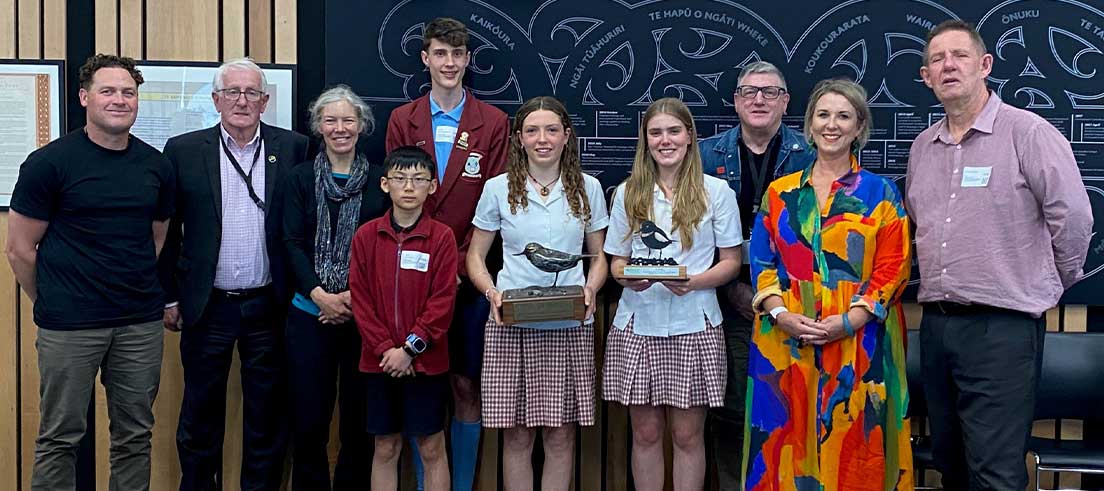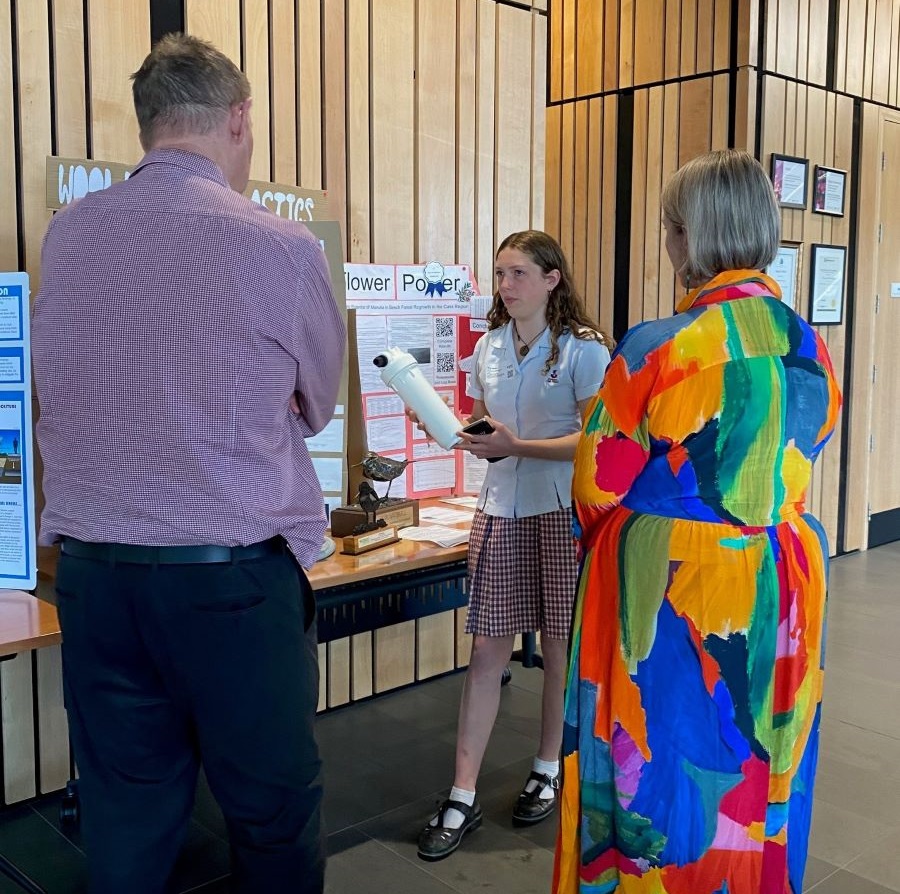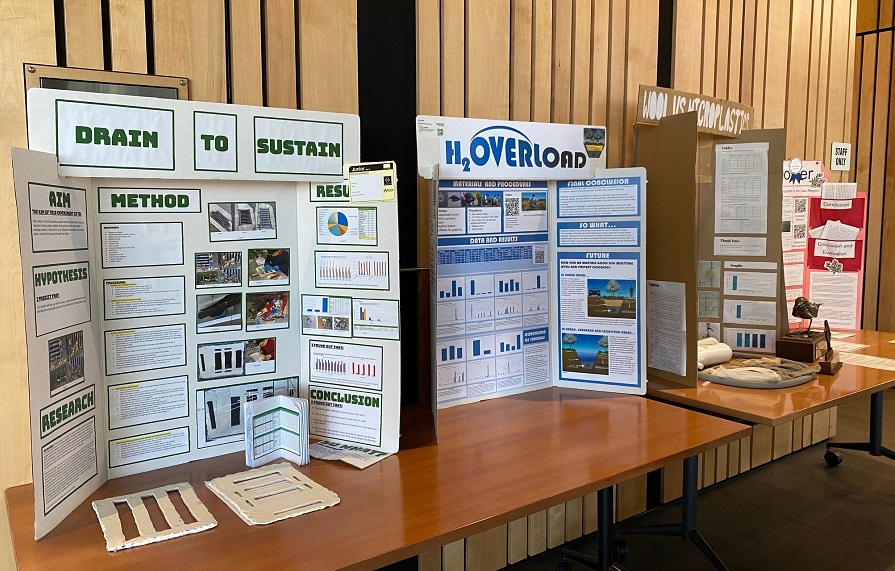
Microplastics under the microscope
A real-world solution to the problem of microplastics has taken out top honours in our 2023 Wrybill Awards.
Millie Palmer, a year 11 student from Cashmere High School in Christchurch, impressed the judges with a continuation of her 2022 project using wool to naturally filter microplastics out of water.
In Wool vs Microplastics, Millie used the knowledge she gained in her previous experiments to a real-world scenario, this time applying different types of wool, composite and synthetic mat filters to a customised filter system attached to a washing machine. She then measured the amount of microplastics in the water after several loads of washing.
On examination, Millie found all the filters stopped 100 per cent of the microplastics. However, the young scientist also encountered an unexpected outcome.
“When I looked at the water samples, I found the filters had themselves shed fibres into the water,” Millie said.
“The fibres from the wool filters are natural though and will break down quickly, unlike microplastics that can take up to 1000 years to break down and cause huge damage to our marine environments.”
Millie feels it should be a legal requirement that all washing machines have filters to stop microplastics from entering our water and is currently developing her own filter.
The best of the best
The projects were judged by a panel made up of Councillor Vicki Southworth, Councillor Genevieve Robinson and Lincoln University Professor Jon Hickford. All three judges said that the standard of projects this year and the passion displayed by the four finalists was top-notch.
“The projects presented by these four young scientists are the best of the best, and all tackle environmental issues that are extremely relevant to our world today,” said Councillor Southworth.
Councillor Robinson said it was challenging to decide just one winner.
“I feel that our environment is in great hands knowing that strong, young, and inquisitive minds hold such scientific knowledge and curiosity."
Prof Hickford said that there is more and more evidence showing just how dangerous microplastics are to both the environment and our health.
“Millie’s project takes a major problem and finds a solution that has the potential to make a significant positive impact.”
The 2023 Wrybill Award finalists
The Wrybill Awards have been running since 1996.
To become a finalist, students must exhibit outstanding projects on environmental themes relating to the Council’s portfolios or work streams, particularly around how we look after our natural resources while offering innovative solutions.
Canterbury/Westland
- Senior (1st equal): Millie Palmer, year 11, Cashmere High School with ‘Wool vs Microplastics’ – an investigation into the effectiveness of wool as a microplastics water filter.
- Senior (1st equal): Rowan Matthew, year 13, Cashmere High School with ‘Flower Power’ – the impact of manuka-derived leptospermum on the germination and pre-emergence growth of radish, and the allelopathic potential of manuka in the Cass region to inhibit gorse and broom growth and promote beech forest conservation.
Timaru/South Canterbury
- Junior: Dan Zhang, year 8, Gleniti School with ‘Drain to Sustain’ – an investigation into stormwater drains designs around Timaru.
- Senior: Oliver Kirke, year 12, Roncalli College with ‘H2 Overload’ – do extreme soil moisture levels exacerbate flooding risk?


